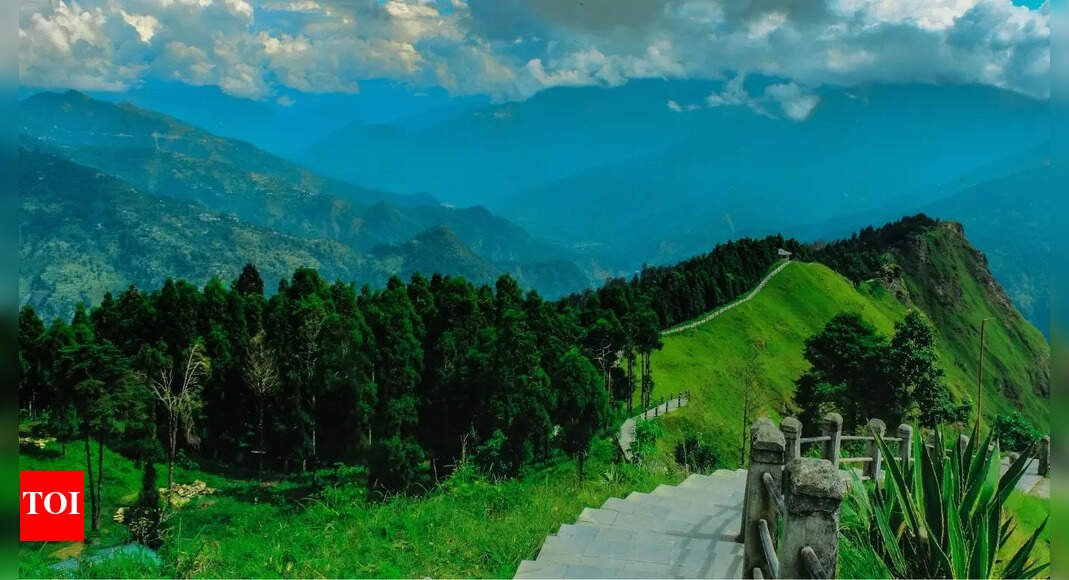Travel Guides & Articles
Thomas Cook India Sets New Benchmark for Cross-Border Payments, Enabling Contactless Forex Transactions in Partnership with Google Pay & Visa, Empowering the Surge of Indian Travelers

Thursday, July 24, 2025
Mumbai, July 24, 2025: A Landmark in Global Travel Payments
On July 24, 2025, Mumbai witnessed a monumental shift in how travelers can manage their finances abroad. A strategic partnership between a leading name in India’s foreign exchange sector and Google Pay has promised to significantly ease how Indian travelers make payments during their international journeys. The collaboration focuses on facilitating contactless payments using prepaid forex cards, marking an important step forward in travel payment solutions.
A New Era in Payment Solutions for International Travel
This collaboration represents a groundbreaking achievement, as it makes Thomas Cook India the first player in India’s cross-border payment sector to enable travelers to process payments directly through smartphones. Whether making a purchase in a physical store or paying for an online service, travelers will now be able to rely on Google Pay’s robust security features, which will ensure a seamless transaction experience.
This move fits perfectly into the current digital-first environment, addressing a clear demand from travelers, particularly younger generations like Millennials and Gen Z, who are increasingly drawn to contactless payment solutions while traveling abroad. These travelers are not just seeking convenience but also security, and the collaboration aims to offer both.
The Surge of Digital Payments in India
In India, the digital payments landscape has seen explosive growth. With platforms like Unified Payments Interface (UPI), India has entered an era of digital-first transactions. As of October 2024, UPI recorded an astounding 16.58 billion transactions, valued at over INR 23.49 lakh crore, marking a 45% increase from the previous year. These numbers underline the country’s fast-growing reliance on digital payment systems, showcasing how integral these solutions have become in everyday life.
This surge in digital transactions is also reflected in the travel and foreign exchange market, with Thomas Cook India reporting that more than 20% of its forex transactions are now conducted digitally. As more people opt for mobile platforms, the partnership with Google Pay ensures that Thomas Cook stays at the forefront of providing cutting-edge payment solutions tailored to modern travelers.
Empowering Travelers with Simple, Secure Payment Options
The collaboration allows users of Thomas Cook forex cards to make secure, contactless payments in over 95 countries. With just a few taps, travelers can add their prepaid forex cards to Google Pay and enjoy a smooth and hassle-free payment experience across accommodation, transportation, dining, and shopping.
The integration offers the following key benefits for travelers:
- Seamless addition of cards to Google Pay.
- Quick, contactless transactions for faster payment processing.
- Enhanced security through tokenization, making transactions more secure.
- The convenience of not needing to carry physical cards, reducing the risk of loss or theft.
- Global access, enabling payments in multiple countries without difficulty.
These features align with the increasing demand for speed, security, and convenience, particularly among younger travelers, who expect technology to meet their evolving needs in the digital age.
Addressing the Needs of a Tech-Savvy, Young Travel Population
The shift toward mobile-first payment solutions is especially significant for India’s younger generation, which has become a key driver in the global travel market. Millennials and Gen Z are leading the way, as they demand simplified, secure, and digital solutions for managing their travel-related expenses.
With a population that is both digitally savvy and globally connected, India has quickly become one of the world’s fastest-growing markets for international travel. As these generations increasingly seek out mobile-first solutions, this partnership ensures that Indian travelers are equipped with the tools they need for a seamless and secure journey.
Enhancing Payment Security through Advanced Technology
Another aspect of this collaboration is the integration of Visa’s contactless payment technology. By incorporating Visa’s secure technology, the partnership ensures that Indian travelers, particularly the younger demographic, can enjoy fast, secure payment experiences when traveling abroad. As more travelers demand quick, reliable, and secure payment methods, this collaboration aims to meet these growing needs by providing robust security alongside the speed of contactless payments.
Visa’s contribution is crucial, as it provides extra layers of protection for international transactions. This integration strengthens the partnership’s commitment to meeting the demands of a new generation of travelers who expect ultra-fast payments alongside top-tier security.
A Digital-First Revolution in the Travel Sector
The demand for digital-first payment solutions in the travel industry has surged in recent years, fueled by an increase in global travel and the widespread adoption of mobile payment systems. Today, more people than ever are looking for contactless, secure, and instant payment methods to manage their travel expenses.
This collaboration between Thomas Cook and Google Pay represents a pivotal moment in the evolution of travel payment systems, setting the tone for future developments in the sector. As the world moves increasingly toward mobile-first solutions, the demand for digital payment systems that offer convenience, speed, and security will continue to rise.
For global travelers, the ability to make contactless payments directly from their smartphones means that there is no need to carry multiple physical cards or large amounts of cash. The service’s expansion to 95 countries emphasizes the global scope of digital payment solutions and highlights the growing importance of secure, seamless transactions in the travel experience.
Leading the Charge in Global Payment Solutions for Travelers
As cross-border travel continues to grow at an exponential rate, the Thomas Cook and Google Pay partnership offers a blueprint for future travel payment innovations. This partnership is setting a new standard for how digital payment solutions can be simplified, made more secure, and implemented on a global scale.
The ability to pay via mobile devices in international markets not only alleviates the need for physical cards but also offers the added benefit of reducing the risk of theft or loss. As this digital service expands, its global reach serves to reinforce the growing importance of digital payments in creating effortless and secure travel experiences.
Redefining the Global Travel Payment Landscape
The demand for secure, convenient, and speedy payment systems is reshaping the travel industry as a whole. As more and more travelers opt for digital-first solutions, the Thomas Cook and Google Pay partnership is positioning itself as a trailblazer in the evolution of travel payment systems.
By offering a secure, contactless payment experience, this collaboration allows Indian travelers to enjoy a seamless and hassle-free travel experience, regardless of their destination. India, with its increasingly digitally connected population, is perfectly placed to benefit from such innovative solutions that meet the needs of the modern traveler.
As the world becomes more interconnected, and as India continues to grow as one of the leading global travel markets, the importance of digital payments becomes ever clearer. This partnership is just the beginning of a broader shift toward simplified, secure, and speedy payment solutions for travelers everywhere.
The Future of Travel Payments is Mobile
The rise of mobile-first payment solutions and the increasing adoption of contactless transactions are poised to shape the future of global travel. Thomas Cook and Google Pay’s partnership not only meets today’s travel needs but also sets the stage for the next evolution in travel payment systems. By addressing the increasing demand for security, speed, and convenience, this collaboration is transforming how travelers across the world handle payments during their international trips.
As digital payment systems continue to gain ground, this partnership marks the beginning of a new era for travelers, ensuring that their journeys are easier, faster, and more secure. The move toward mobile-first, contactless solutions will inevitably redefine how people travel in the future, making the global exploration more efficient and accessible to all.
Travel Guides & Articles
India’s TBO to acquire Classic Vacations

India based travel distribution platform TBO has agreed to acquire Classic Vacations from Phoenix-based investment firm, The Najafi Companies.
The transaction value is estimated at up to $125 million.
The acquisition brings together TBO’s technology platform and worldwide inventory with Classic Vacations network of luxury travel advisors and suppliers.
Classic Vacations delivered revenue of $111 million and an operating EBITDA of $11.2 million in the fiscal year ended December 31, 2024.
“We’re thrilled to bring Classic Vacations into the TBO family – the company’s longstanding delivery of outstanding services has earned the trust of its more than 10,000 travel advisors in the U.S,” said Gaurav Bhatnagar, TBO’s co-founder and joint managing director.
“Classic Vacations is led by a strong team of experts and will continue as an independent brand.”
“As we start working on integrating Classic Vacations with TBO, we will remain open to similar strategic alliances going forward,” added Ankush Nijhawan, co-founder and co-managing director.
Melissa Krueger, CEO of Classic Vacations, added: “Together, we’re strengthening Classic Vacations’ position as the premier luxury partner in the market while extending our reach onto the global stage.”
Classic Vacations was bought by The Najafi Companies in 2021 from Expedia Group.
Classic Vacations has a large network of high-value travel advisors and deep ties with major American consortia.
It delivers premium service across hotels, air, experiences, car rentals, and travel protection, specializing in bespoke luxury itineraries.
Related News Stories: Partner News – TravelMole
Travel Guides & Articles
Govt allows select minorities to stay in India without passport

The Union Home Ministry on Monday, September 1, issued an order announcing that the government now exempts minority communities, namely, Hindu, Sikh, Buddhist, Jain, Parsi and Christian fleeing religious persecution from Afghanistan, Bangladesh, and Pakistan, who entered the country by December 31, 2024, without requiring valid passports or travel documents.
“A person belonging to a minority community in Afghanistan, Bangladesh and Pakistan, namely, Hindu, Sikh, Buddhist, Jain, Parsi and Christian, who was compelled to seek shelter in India due to religious persecution or fear of religious persecution and entered into India on or before the 31st December, 2024,” read the order from the home ministry.
Interestingly, the order did not name Muslims. This is in line with the BJP-led government’s Citizenship Amendment Act (CAA) that was passed in 2019 to facilitate this. It had le to severe protests from Muslims and other citizens who said the law is discriminatory in nature and that it can also be misused to disenfranchise Muslims in the country.
In fact, over the last few months the central government and BJP-led state governments have been targeting Indian Muslims from West Bengal who were being picked up on false allegations of being Bangladeshi citizens. Several prominent activists including Umar Khalid and Sharjeel Imam are currently in jail having spent nearly five years in prison on charges of inciting riots in Delhi amid the anti-CAA protests.
It was issued as part of a series of directives made public by the Union Home Ministry, under the newly enacted Immigration and Foreigners Act, 2025, which came into effect on Monday, September 1.
The Immigration and Foreigners Bill, 2025, aims to grant the Union government the power to control the entry and exit of individuals into and from India by regulations that outline requirements for travel documents, such as passports, and govern various aspects of foreign nationals’ stay, including visa rules, registration procedures, and other related matters.
Previously, the Citizenship Amendment Act (CAA), which was enforced last year, extended the eligibility for citizenship only to non-Muslim minorities from Afghanistan, Bangladesh, and Pakistan who entered India on or before December 31, 2014.
While the recent directive allows certain individuals to stay in India without documentation if they arrived by December 31, 2024, it doesn’t guarantee citizenship.
In contrast, the 2019 Citizenship Amendment Act offers a path to citizenship for persecuted non-Muslim minorities from Pakistan, Afghanistan, and Bangladesh who entered India before December 2014.
The CAA’s exclusion of Muslims sparked widespread protests and concerns about discrimination, secularism, and potential disenfranchisement.
Travel Guides & Articles
Greenest destinations in India for eco-conscious travellers |

India is a haven for eco-conscious travelers seeking sustainable travel experiences. From lush rainforests to pristine Himalayan valleys, these are the places where natural beauty and responsible tourism go hand in hand. Here is a list of India’s greenest escapes, ideal for travelers who wish to explore and make the most of the outdoors while minimizing their environmental impact.
Mawlynnong, Meghalaya
Known as Asia’s Cleanest Village, Mawlynnong in Meghalaya is a model of sustainable living. Look around you and you will find bamboo dustbins. People do not litter here and they expect the tourists also to respect the village’s ways and not litter. Plastic is banned here. Take out time to explore the living root bridges, and interact with the local community. There are eco-lodges and homestays where visitors can stay, these stays offer authentic experiences.
Thenmala, Kerala
This is India’s first planned eco-tourism destination, Thenmala in Kerala’s Western Ghats offers a sustainable escape amidst evergreen forests. Also known as “Honey Hill,” it features attractions like the Thenmala Dam, Butterfly Safari Park, and Shenduruney Wildlife Sanctuary. For those interested, there are activities like boating, trekking, and rock climbing.
Sikkim
The entire state of Sikkim is a beacon of eco-tourism. Sikkim is recognized for its organic farming and conservation efforts. No wonder, it is also India’s first fully organic state. Sikkim is home to the Khangchendzonga National Park, a UNESCO World Heritage Site, which also boasts diverse flora and fauna, including red pandas and snow leopards. There is no dearth of eco-friendly guesthouses, responsible trekking opportunities, and cultural immersion with Lepcha and Bhutia communities. And last but not least, Sikkim is very clean, thanks to the eco-conscious communities.
Munnar, Kerala
Munnar in Kerala’s Western Ghats, is known for its tea plantations, lush valleys, and biodiversity. It is where you will find the rare Neelakurinji flower and species like the Nilgiri Tahr. Munnar is a great place for those seeking romantic getaways, but it is equally perfect for those seeking adventure activities like trekking and wildlife watching. Eco-resorts and sustainable practices, like waste management and local sourcing, ensure a low environmental footprint.
Spiti Valley, Himachal Pradesh
Monsoon may not be the right time to visit Spiti Valley, but come drier months, Spiti is one of the best in the country. This cold desert in the Himalayas, balances tourism with ecological preservation. Solar-powered homestays and community-based tourism initiatives support local livelihoods while protecting the fragile ecosystem. Travelers can explore ancient monasteries, trek through rugged terrains, and engage with sustainable practices, making Spiti a unique eco-destination. Here, it’s all about green energy and sustainable practices, because the greenery that comes with nature is a bit rare here, thanks to it being a cold desert.
-

 Business5 days ago
Business5 days agoThe Guardian view on Trump and the Fed: independence is no substitute for accountability | Editorial
-
Tools & Platforms3 weeks ago
Building Trust in Military AI Starts with Opening the Black Box – War on the Rocks
-

 Ethics & Policy1 month ago
Ethics & Policy1 month agoSDAIA Supports Saudi Arabia’s Leadership in Shaping Global AI Ethics, Policy, and Research – وكالة الأنباء السعودية
-

 Events & Conferences4 months ago
Events & Conferences4 months agoJourney to 1000 models: Scaling Instagram’s recommendation system
-

 Jobs & Careers2 months ago
Jobs & Careers2 months agoMumbai-based Perplexity Alternative Has 60k+ Users Without Funding
-

 Education2 months ago
Education2 months agoVEX Robotics launches AI-powered classroom robotics system
-

 Funding & Business2 months ago
Funding & Business2 months agoKayak and Expedia race to build AI travel agents that turn social posts into itineraries
-

 Podcasts & Talks2 months ago
Podcasts & Talks2 months agoHappy 4th of July! 🎆 Made with Veo 3 in Gemini
-

 Podcasts & Talks2 months ago
Podcasts & Talks2 months agoOpenAI 🤝 @teamganassi
-

 Education2 months ago
Education2 months agoAERDF highlights the latest PreK-12 discoveries and inventions





















